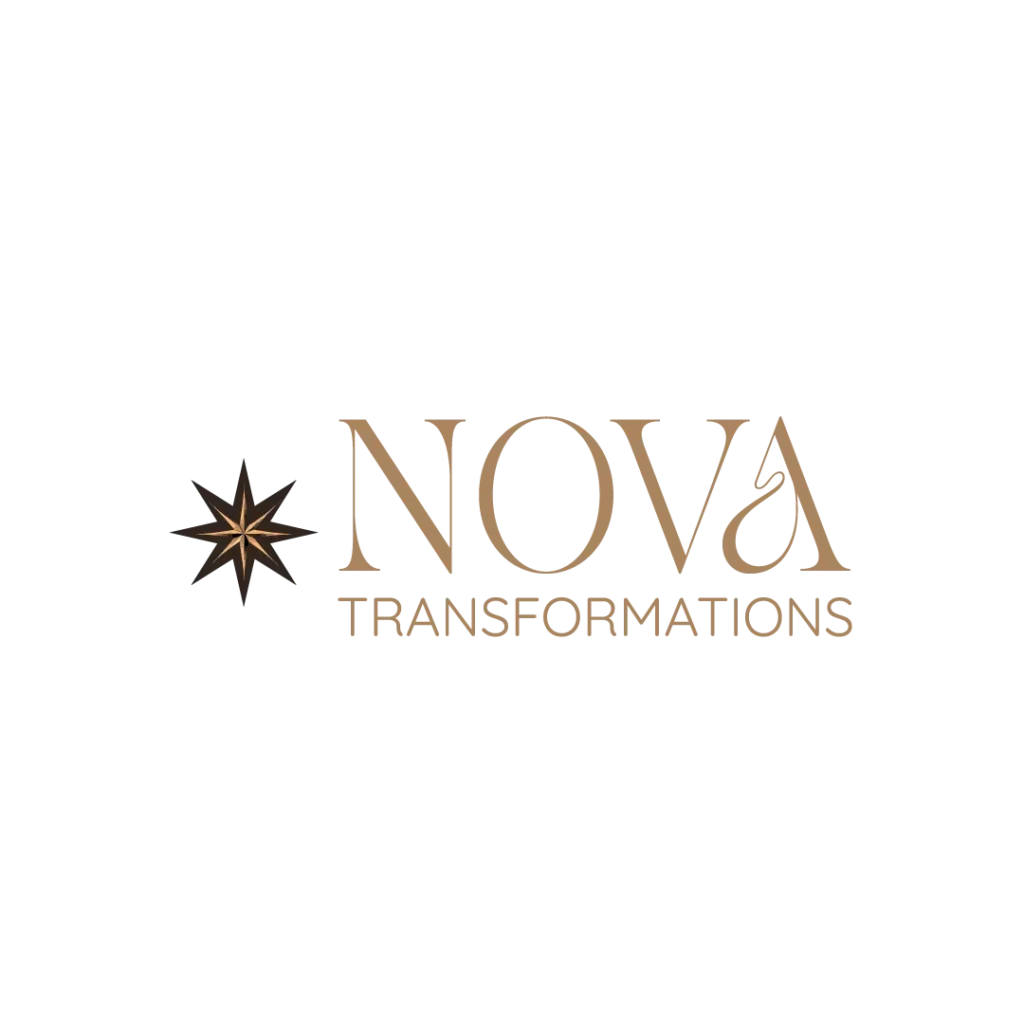Introduction to Addiction Therapy
In the journey towards overcoming addiction, choosing the right therapy is crucial. Therapy plays a vital role in helping individuals reclaim their lives from substance abuse, and at Nova Transformations, you can access industry-leading programs that emphasize effective and compassionate care.
Evidence-Based Therapeutic Tools
Addiction therapy utilizes evidence-based therapeutic tools aimed at assisting individuals struggling with drug addiction, including co-occurring disorders. This approach ensures that you receive treatment grounded in scientific research and proven methodologies (Oxford Treatment Center). Common therapeutic techniques include:
- Cognitive-Behavioral Therapy (CBT)
- Dialectical Behavior Therapy (DBT)
- Experiential Therapy
Each of these methods has shown effectiveness in treating addiction and facilitating lasting recovery. The integration of these therapies into your treatment plan provides a comprehensive approach that fosters personal growth and emotional healing.
| Therapy Type | Description |
|---|---|
| Cognitive-Behavioral Therapy (CBT) | Focuses on identifying and changing negative thought patterns and behaviors that contribute to addiction. |
| Dialectical Behavior Therapy (DBT) | Combines cognitive-behavioral techniques with mindfulness practices to help manage emotions and improve relationships. |
| Experiential Therapy | Engages individuals in activities and experiences that promote emotional healing and self-discovery. |
Tailored Treatment Plans
At Nova Transformations, every addiction treatment plan is customized to meet your individual needs; there is no one-size-fits-all solution. Effective therapy for drug addiction recognizes that personal experiences and challenges vary significantly among individuals. This personalized approach maximizes the chances of successful outcomes and supports the unique path to recovery.
Addiction treatment often involves multiple therapy types, including individual, group, and family counseling. By addressing specific needs and providing professional support, tailored plans can effectively address the complexities of addiction (NIDA).
In addition to traditional therapies, you might also find alternative and holistic therapies available, such as yoga, art therapy, and meditation that can complement your primary treatment. These additional therapies can promote overall well-being and equip you with coping strategies necessary for sustaining recovery.
By choosing a comprehensive treatment approach at Nova Transformations, you ensure that you or your loved one receives the best possible support in overcoming addiction. For more information on specific treatment options, consider exploring alcohol rehab, cocaine rehab, or dual diagnosis treatment.
Types of Addiction Therapy
When seeking effective treatment for substance use disorders, understanding the different types of therapy can help you make informed decisions. Here are three prominent therapy options that Nova Transformations incorporates into its drug addiction programs.
Cognitive-Behavioral Therapy (CBT)
Cognitive-behavioral therapy (CBT) is a conversational approach that focuses on identifying and modifying negative thought patterns. This method is highly effective for treating mental disorders and addiction, either alone or in combination with other therapies. CBT helps you manage symptoms, prevent relapse, learn coping mechanisms, and overcome emotional trauma (NAATP).
CBT can provide you with tools to recognize triggers, identify harmful behavior patterns, and develop healthier responses. This structured framework can be instrumental in your recovery journey.
| Key Benefits of CBT |
|---|
| Identifies negative thought patterns |
| Teaches coping strategies |
| Reduces risk of relapse |
| Enhances emotional regulation |
Dialectical Behavior Therapy (DBT)
Dialectical Behavior Therapy (DBT) is an advanced form of CBT that emphasizes behavioral skill development. It successfully treats addiction and various mental health conditions. DBT teaches crucial skills in emotional regulation, interpersonal effectiveness, stress management, and conflict resolution through both individual and group sessions (NAATP).
DBT is particularly beneficial for those who may struggle with intense emotions or interpersonal conflicts, providing you with a comprehensive skill set to navigate life’s challenges effectively.
| Key Focus Areas in DBT |
|---|
| Emotion regulation |
| Interpersonal effectiveness |
| Stress management |
| Conflict resolution |
Experiential Therapy
Experiential therapy includes various techniques that engage patients’ emotions to explore subconscious thoughts and feelings. Techniques such as Eye Movement Desensitization and Reprocessing (EMDR) are often used to treat substance use disorders. This approach can help you connect with your emotional responses and past experiences to facilitate healing and recovery (NAATP).
Experiential therapy is particularly effective for individuals who find traditional talking therapies challenging, as it allows you to express emotions in diverse ways and encourages self-discovery.
| Techniques in Experiential Therapy |
|---|
| Eye Movement Desensitization and Reprocessing (EMDR) |
| Art therapy |
| Music therapy |
| Psychodrama |
By understanding the various types of therapy for drug addiction, you can make an informed decision on what resonates best with you or your loved one. At Nova Transformations, we offer a variety of treatment programs, including alcohol rehab and opioid rehab, designed to cater to your unique needs and foster a pathway to recovery.
Importance of Family Therapy
Family therapy plays a pivotal role in the journey of recovery from addiction. Involving family members in therapy not only helps the individual grappling with substance use but also fosters understanding and healing among all involved.
Involving Family in Treatment
Including family in the treatment process can significantly enhance the effectiveness of recovery efforts. Family therapy engages loved ones in meaningful discussions and problem-solving sessions, helping them better understand the disease model of addiction. This collective approach supports the patient toward recovery, strengthens family bonds, and creates a nurturing environment conducive to healing (NAATP).
Table 1 below illustrates the benefits of involving family in addiction treatment.
| Benefit | Description |
|---|---|
| Enhanced Communication | Family members learn to communicate openly and honestly about their feelings, leading to better support. |
| Better Understanding of Addiction | Families gain insights into the complexities of addiction, reducing stigma and blame. |
| Support System | Patients feel more supported, fostering a sense of belonging during challenging times. |
| Improved Treatment Outcomes | Involving family members leads to more favorable recovery outcomes and lower relapse rates. |
Understanding Addiction as a Family
Addiction does not only affect individuals; it impacts families as a whole. Understanding addiction as a family issue promotes healing and recovery within the household. Family therapy aims to identify patterns of behavior and communication that contribute to addiction, allowing the family to address these dynamics constructively.
When families acknowledge their collective challenges, they can work together to establish healthier patterns and support mechanisms. Beyond individual therapy sessions, integrating family therapy into treatment can capitalize on the therapeutic alliance, which has been shown to be a strong predictor of positive recovery outcomes. This relationship fosters trust and open communication, ultimately benefiting the individual in recovery (American Addiction Centers).
To learn more about family involvement in addiction treatment, explore our article on family therapy addiction treatment.
Strategies for Relapse Prevention
Implementing effective strategies for relapse prevention is essential during your journey to recovery from addiction. This section explores Two critical approaches: Twelve-Step Facilitation (TSF) and Identifying Triggers.
Twelve-Step Facilitation (TSF)
Twelve-Step Facilitation (TSF) is a structured approach designed to motivate individuals in addiction treatment. This method focuses on engaging you in a personal recovery program through a series of steps that promote self-awareness and accountability. TSF emphasizes the importance of acknowledging spiritual aspects of recovery while building a supportive community.
Key components of TSF include:
| Component | Description |
|---|---|
| Education | Learn about addiction and recovery processes |
| Engagement | Participate in group discussions and activities |
| Support Network | Establish connections with peers in recovery |
| Relapse Prevention | Develop coping strategies to manage triggers |
Implementing TSF not only helps you understand your addiction but also equips you with the tools needed to overcome challenges, ultimately aiming to prevent relapse and facilitate lasting recovery (NAATP).
Identifying Triggers
Identifying triggers is a vital component of any effective relapse prevention strategy. Understanding what situations or emotions lead to cravings can help you navigate these challenges more effectively. This process typically involves working closely with a clinician to assess your environment, emotional states, and social pressures.
Key triggers to consider might include:
| Trigger Type | Examples |
|---|---|
| Emotional States | Stress, anxiety, depression |
| Social Pressures | Parties, gatherings with users |
| Lifestyle Factors | Lack of structure, unsupportive environments |
During the relapse prevention process, clinicians often recommend personal reflections and mindfulness techniques. Different methods like Mindfulness-Based Relapse Prevention (MBRP) can assist in teaching you how to cope with cravings and triggering situations without resorting to substance use (Recovery Answers).
Identifying triggers requires regular evaluation and discussion to adapt your recovery efforts continually. Engaging in this process can strengthen your resilience against potential relapses and support your commitment to sobriety. For further information on comprehensive treatment options, explore addiction treatment services at Nova Transformations.
Incorporating Medications in Treatment
Effective treatment for drug addiction often includes the use of medications alongside therapeutic interventions. Understanding the role of medications can significantly impact your recovery journey.
FDA Approved Medications
Several FDA-approved medications are essential in the treatment of substance use disorders. These medications aid not only in the recovery process but also help in managing dependencies and cravings effectively. Below are some of the commonly used medications:
| Medication | Purpose | Condition Treated |
|---|---|---|
| Methadone | Reduces cravings and withdrawal symptoms | Opioid Use Disorder |
| Buprenorphine | Prevents withdrawal symptoms | Opioid Use Disorder |
| Naltrexone | Blocks euphoric effects of opioids | Opioid and Alcohol Use Disorders |
| Lofexidine | Manages withdrawal symptoms | Opioid Use Disorder |
| Disulfiram | Deterrent for alcohol consumption | Alcohol Use Disorder |
| Acamprosate | Helps maintain abstinence | Alcohol Use Disorder |
| Bupropion | Helps with cravings | Nicotine Use Disorder |
These medications can be vital in managing conditions, especially when taken as prescribed. When integrated properly within a substance use treatment plan, they provide a solid foundation for recovery. Check out more about related treatments, including medication-assisted treatment, for a comprehensive approach to recovery.
Controlling Withdrawal Symptoms
Withdrawal symptoms can pose significant challenges during the recovery process. The right medications can help manage these symptoms effectively. For example:
- Methadone and Buprenorphine are particularly effective in treating opioid addiction, allowing individuals to navigate the withdrawal process more comfortably without experiencing euphoric effects (NIDA).
- Nicotine Replacement Therapy is beneficial for individuals seeking to quit smoking, targeting withdrawal symptoms that could arise during cessation.
Clinical studies indicate that employing medications such as these can improve treatment outcomes by enabling individuals to focus on their recovery without the debilitating effects of withdrawal. Furthermore, structured programs often incorporate these medications to ensure a stable recovery environment.
For those considering recovery, integrating medications with therapy for drug addiction can lead to an effective management plan that promotes both physical and mental health. Consider exploring options like outpatient alcohol rehab or intensive outpatient programs that may offer comprehensive support during your journey.
Technology-Based Interventions
Technology-based interventions have transformed the landscape of addiction treatment, ensuring that effective therapy for drug addiction is more accessible. By utilizing computer and mobile platforms, treatment options are now available at your fingertips, making recovery more convenient and achievable.
Computer and Mobile Platforms
The rise of digital therapy tools has enhanced the connection between clients and treatment providers. These platforms can deliver evidence-based therapies directly to individuals, allowing for increased engagement and improved outcomes. You can access treatment plans, virtual therapy sessions, and support resources through applications and websites specifically designed for substance use recovery. According to a study published on PubMed Central, the use of technology-based interventions has expanded access to effective treatments for substance use disorders.
| Type of Platform | Benefits |
|---|---|
| Mobile Apps | 24/7 access to resources, progress tracking, reminders for medication and therapy |
| Online Therapy Sessions | Flexibility in scheduling, comfort of home environment, reduced travel time |
| Community Forums | Connection with support groups, sharing experiences, offering advice and encouragement |
Broadening Access to Treatments
Technology is breaking down barriers to treatment by providing options for people who may face challenges accessing traditional rehab settings. Whether you struggle with transportation, time constraints, or geographical limitations, online resources can provide the support necessary for your recovery journey.
For those considering rehabilitation for specific substances, platforms often cater to a wide range of needs, from alcohol rehab to opioid rehab and fentanyl rehab. This means you can find tailored options suitable for your condition, right from the comfort of your home.
As you explore your treatment options, know that modern technology can play a vital role in making recovery not only possible but also more personalized and effective. Utilizing these resources can help you or your loved one on the path to healing and long-term sobriety. For more details about therapies suitable for addiction, consider looking into our articles on individual therapy addiction treatment and group therapy addiction treatment.








